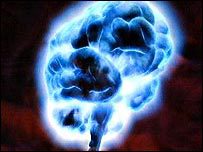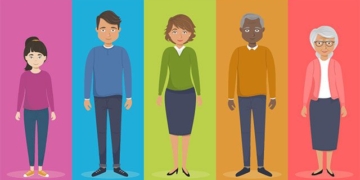Why do tragic suicides occur while many people continue to fight for life despite adversity? The answer also serves as the motivation that drives neuroscientists toward the discovery of a synthetic happiness drug.
Recent archaeological findings suggest that since the Stone Age, our ancestors have known how to create alcoholic beverages to achieve the feeling of “floating on cloud nine.” Today, just a single synthetic pill the size of a chopstick can provide you with an exhilarating sensation. Moreover, neuroscientists are beginning to manipulate feelings of happiness directly from the brain…
Experiments in the Quest for Happiness
 |
|
Scientists Peter Milner and James Olds experimenting to make mice feel happiness (Photo: BBC) |
In 1954, scientists Peter Milner and James Olds conducted fundamental experiments on rodents. They implanted electrodes into the brains of laboratory mice and discovered that when activated by small electrical pulses, the animals exhibited clear signs of excitement and pleasure; this sensation vanished when the electrical current was interrupted. They also found that by exploiting this method, they could compel the animals to perform complex and difficult tasks that they normally could not do, notably generating electrical impulses at a rate of 2,000 times per hour to suppress their cravings for food and drink… Furthermore, they identified the specific area of the brain responsible for these sensations.
In the late 1960s, psychologist Robert Heath at Tulane University (New Orleans, USA) applied a similar activation method on humans.
In recent years, these experiments have led neurologists to develop similar therapeutic approaches to help Parkinson’s patients alleviate tremors, particularly to prevent chronic pain in the elderly.
The Future Happiness Drug
From these unexpected results, suggestions have been made regarding similar therapies for future happiness drugs. However, according to neuroscientist Morten Kringelbach at Oxford University, the road ahead is still quite long.
 |
|
The future happiness drug (Photo: BBC) |
Dr. Kringelbach states that while science can currently create a certain sense of happiness or satisfaction for humans, the primary focus at this time will be on alleviating pain and prolonged depression in patients with depression.
Is It Advisable?
A recent survey in the UK regarding whether to opt for a synthetic happiness pill revealed that most respondents indicated they would use it if there were no side effects, while three-quarters expressed caution…
Meanwhile, veteran psychologist Ed Diener firmly opposes the idea of artificial happiness. “None of us want to ‘isolate’ happiness, but it would certainly be better if, with our own emotional functions, we respond when bad things happen and rejoice when good things come…” – he stated. Echoing this sentiment is Professor Paul Salovskis, a clinical psychologist at King’s College London. He believes that happiness drugs could potentially become a… misfortune when abused, much like cosmetic surgery does not always enhance beauty.


















































